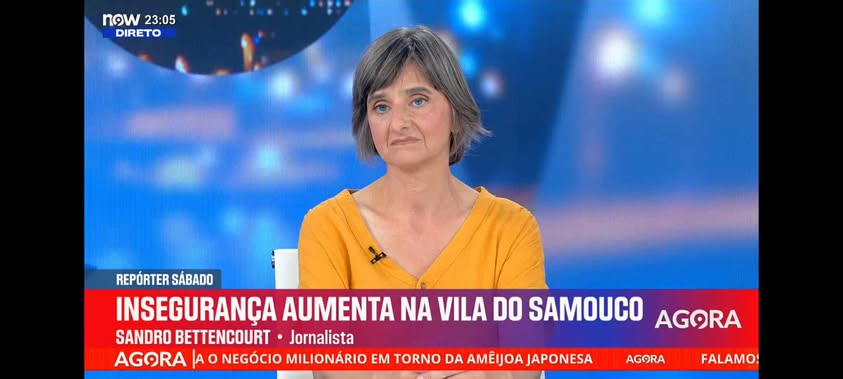Illegal harvesting of Japanese clams in the Tagus River: MARE researcher in debate on criminal network and risks to public health
Paula Chainho joined the NOW channel panel after the report aired on Saturday, 19 June, at 11 p.m.
The Tagus estuary is at the centre of an increasingly worrying problem: trafficking in bivalves, labour exploitation, food contamination and organised networks with international connections. The report ‘The restricted world of illegal shellfish gatherers’, broadcast on the NOW channel on Saturday, 19 June, at 11 p.m., revealed how tonnes of Japanese clams, caught illegally, leave the Tagus daily for countries such as Spain, Italy and the United Kingdom.
The broadcast was followed by a live debate that brought together several experts and officials. Participants included: Sandro Bettencourt (journalist, author of the report), Pedro Proença (lawyer), Paulo Vicente (commander and captain of the Port of Lisbon), Ana Moura (inspector-director of ASAE) and Paula Chainho, researcher at MARE/ARNET and professor at the Faculty of Sciences of the University of Lisbon (CIÊNCIAS).
Paula Chainho's intervention brought to the debate the contribution of science in dealing with the problem.
‘What we have been trying to do is generate useful information to support decisions on Japanese clam fishing,’ she explained. ‘We map where it exists, quantify stocks, study growth rates, reproduction periods... All of this serves to propose maximum limits, minimum catch sizes and closed seasons, adapted to the reality of each system.’
In addition to the ecological dimension, the researcher warned of the risks to public health.
‘We have had problems from a health perspective because of the contamination of the clams themselves.’ Although water quality is improving, the lack of traceability in the illegal circuit compromises consumer safety. ‘Clams caught in the Tagus are often declared as being from the Sado,’ she said.
This illegal practice, organised in networks with tentacles across borders, challenges existing enforcement mechanisms and becomes an obstacle for legal gatherers, who operate according to the rules and see the market flooded with uncontrolled products.
During the debate, the need for a coordinated response between authorities, local entities and the government became clear. Scientific knowledge has already contributed to adjustments in regulations, such as the reduction of daily harvesting limits, but, as several participants pointed out, political courage will be needed to tackle the problem in its true dimension.
To see the report, click HERE
Text by Vera Sequeira
